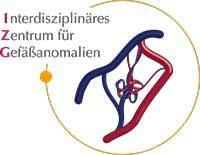Ovarian Cancer — Embolization or Chemoembolization: treatment in the Best Hospitals of Germany
Treatment prices are regulated by national law of the corresponding countries, but can also include additional hospital coefficients. In order to receive the individual cost calculation, please send us the request and medical records.

Department of Interventional Radiology
The Department of Interventional Radiology offers the full range of imaging examinations, as well as innovative image-guided minimally invasive techniques for the treatment of tumors, vascular diseases and internal pathologies (for example, CT, MRI, PET-CT, SPECT). The department's doctors have deep knowledge and colossal experience in the field of interventional radiological methods of treatment, which represent an excellent alternative to open surgical interventions. Despite the high level of technical equipment and the presence of advanced computerized systems, the focus is always on the person with his individual needs. Compliance with current clinical protocols and high professionalism of the department's specialists contribute to the successful clinical practice, as well as the reputability of the department among the best medical facilities of this kind in Germany.




Department of Interventional Radiology and Neuroradiology
The Department of Interventional Radiology and Neuroradiology offers a full range of advanced imaging diagnostics and minimally invasive treatments on both an inpatient and outpatient basis. The department has state-of-the-art medical equipment for imaging tests such as X-ray, computed tomography, magnetic resonance imaging, digital subtraction angiography, and mammography. The medical facility also performs many highly effective interventional therapeutic procedures under image guidance, which in many cases allow patients to avoid traumatic open surgery. For example, the department successfully performs local fibrinolysis, thrombectomy, percutaneous transluminal angioplasty, hemostasis, transarterial chemoembolization, uterine artery embolization, and other procedures. The department's neuroradiologists specialize in brain and spinal cord imaging and the treatment of central nervous system disorders. Interventional neuroradiology focuses on the treatment of carotid artery stenosis, brain aneurysms, arteriovenous malformations, dural fistulas, subdural hematomas, brain tumors, skull base and spinal tumors, and chronic back pain. The department's medical team has extensive clinical experience in their areas of expertise. The specialists are guided by the recommendations of the German Society for Interventional Radiology and Minimally Invasive Therapy (DeGIR) and the German Society for Neuroradiology (DGNR), which helps to achieve the best results.






Department of Adult and Pediatric Diagnostic, Interventional Radiology, Neuroradiology
The Department of Adult and Pediatric Diagnostic, Interventional Radiology, Neuroradiology is one of the best institutions of its kind in Germany and offers patients the full range of radiological studies and imaging-guided minimally invasive therapy. The department’s scope of tasks also includes imaging diagnostics in children of all age groups, detection and invasive treatment of cerebral vascular pathology (neuroradiology). Patient care is provided both on an inpatient and outpatient basis.






Ovarian cancer is the most severe and prognostically unfavorable gynecologic cancer. 25% of patients are diagnosed with the oncological disease only at the fourth stage. Moreover, 20% of them have liver metastases. The best treatment option in such cases is considered liver resection surgery, but it is a complex operation with a large number of contraindications. In addition, it is performed only in women with good control of other tumors in the body. Therefore, chemoembolization is more often used to control metastases. This is a minimally invasive procedure that has a minimum of contraindications and is well tolerated. There is no need for long-term rehabilitation after this procedure.
Content
- How is ovarian cancer treated?
- What is embolization?
- When can embolization be performed?
- How is embolization performed?
- What is radioembolization?
- Where can I undergo treatment?
How is ovarian cancer treated?
A laparoscopic salpingo-oophorectomy (removal of the ovaries and fallopian tubes) can be performed to treat early stages of cancer. Since disease screening is not carried out, ovarian cancer diagnostics usually begin when symptoms manifest themselves, so most cases are detected at the advanced stages.
The primary treatment for ovarian cancer involves cytoreductive surgery (CRS). During the intervention, the doctor performs a hysterectomy, during which he removes the uterus and its appendages and also removes all tumor foci and suspicious areas of the peritoneum detected in the abdominal cavity. The operation includes lymphadenectomy, but surgeons remove only enlarged lymph nodes, not all regional lymph nodes. Hyperthermic intraperitoneal chemotherapy (HIPEC) may be performed after surgery. Doctors rinse the abdomen with a heated solution of cytostatics to destroy accumulations of cancer cells invisible to the eye.
In cases of unresectable cancer, chemoradiotherapy, personalized therapy with immunostimulators, and targeted therapy are used. Ovarian cancer treatment in Germany often includes metastasis-directed therapy. One of the ways to combat metastasis is embolization.
What is embolization?
Embolization is the blocking of a blood vessel. For patients with cancer, this procedure is performed to deprive the tumor of its blood supply. When cancer cells are deprived of oxygen, they die quickly.
The effect of embolization can be enhanced with chemotherapy drugs. In this version, the procedure is called chemoembolization. It can be done in different ways. The most common is called oily chemoembolization. The procedure involves injecting an oil-based lipiodol solution with chemotherapy drugs into the blood vessels or embolizing with drug-saturated microspheres.
In any case, chemoembolization is a minimally invasive, sparing, and safe treatment. Most patients can tolerate the procedure, even those who are debilitated by their disease, which is especially important in the treatment of advanced cancers.
When can embolization be performed?
The main candidates for chemoembolization are patients with liver metastases that continue to grow despite systemic chemotherapy.
Thus, ovarian cancer chemoembolization in Germany is performed not to treat the primary ovarian tumor but to suppress liver metastases. They may spread even if the ovaries were previously removed during surgery. In this case, chemoembolization is performed as a stand-alone procedure. Chemoembolization can also be an addition to cytoreductive surgery for newly diagnosed ovarian cancer with liver metastases.
Chemoembolization can be used for many oncological diseases, but it is most effective for suppressing intrahepatic metastases. This is due to the fact that the liver has a dual blood supply. The portal vein and the hepatic artery supply the organ with blood. Moreover, healthy tissue receives predominantly venous blood, and pathologic tissue receives arterial blood.
Therefore, obstruction of the arteries supplying the tumor is usually highly effective and safe. It does not significantly impair liver function and, at the same time, causes catastrophic consequences for the metastatic tumor. The tumor may decrease in size by 10-20 times, and in some patients, tumor foci disappear completely.
How is embolization performed?
Transarterial chemoembolization (TACE) is a minimally invasive procedure that is performed under local anesthesia through an incision in the groin. The doctor inserts a catheter into the femoral artery. It reaches the hepatic artery under X-ray guidance. By injecting a contrast agent, doctors can see where blood flows through the blood vessels. They identify the branches of the hepatic artery that supply blood to the tumor and occlude them with emboli. As a rule, they block lobar or segmental branches.
Drug-saturated microspheres are most often used as emboli. Some of them are already produced with drugs in their composition, while others can be saturated with them in the hospital just before the procedure.
Different drugs can be used. Medicines are selected based on the type of cancer and previous experience with cancer treatment. Most often, these are mitomycin C, gemcitabine, cisplatin, or combinations of these drugs.
Following embolization, the effect develops quite quickly. Already in the first days after the procedure, the size of the tumor shrinks, and it continues to shrink for several weeks. The initial result of the procedure is achieved through ischemic necrosis: the tumor dies because no blood is supplied to its cells. Subsequently, the cancer cells continue to die as they are affected by the chemotherapy drugs gradually released from the microspheres.
This therapy is much more effective than systemic (intravenous) drug application due to the higher concentration of drugs in the focus of the lesions. At the same time, regional chemotherapy is safer. It does not cause any severe systemic side effects because most of the dose is taken up by the cancer cells, and the drugs enter the bloodstream in minimal amounts.
What is radioembolization?
Embolization can be combined with regional radiation therapy instead of chemotherapy. In this case, the microspheres are saturated with Yttrium-90. This procedure is called transarterial radioembolization (TARE), and it is less commonly used.
One of the comparative studies showed that TARE is less effective than TACE. However, it is worth considering that TARE was performed for patients with hypovascular (poor blood supply) tumors. These patients initially have worse conditions for achieving a more expressed cytoreductive (tumor shrinkage) response.
Even taking these factors into account, the difference in overall survival rates was only three months, which the authors considered insufficient to achieve statistical significance. However, the difference in objective response was more noticeable because the size of the tumor shrank more significantly under the influence of chemoembolization, and this effect lasted longer.
Where can I undergo treatment?
You can go to Germany to undergo your diagnostics and treatment for advanced ovarian cancer with liver metastases. German clinics use advanced techniques that can suppress even metastatic ovarian tumors for years.
You are welcome to use the Booking Health service to find out prices and make your treatment appointment. The cost of embolization or chemoembolization for ovarian cancer is between 24,650 EUR and 41,400 EUR. When you make an appointment through our service, the cost of medical services will be lower for you due to the absence of additional fees for foreign patients. We will help you find the best German hospitals for ovarian cancer chemoembolization and arrange your trip.
Authors:
This article was edited by medical experts, board-certified doctors Dr. Nadezhda Ivanisova, and Dr. Bohdan Mykhalniuk. For the treatment of the conditions referred to in the article, you must consult a doctor; the information in the article is not intended for self-medication!
Our editorial policy, which details our commitment to accuracy and transparency, is available here. Click this link to review our policies.
Sources:

